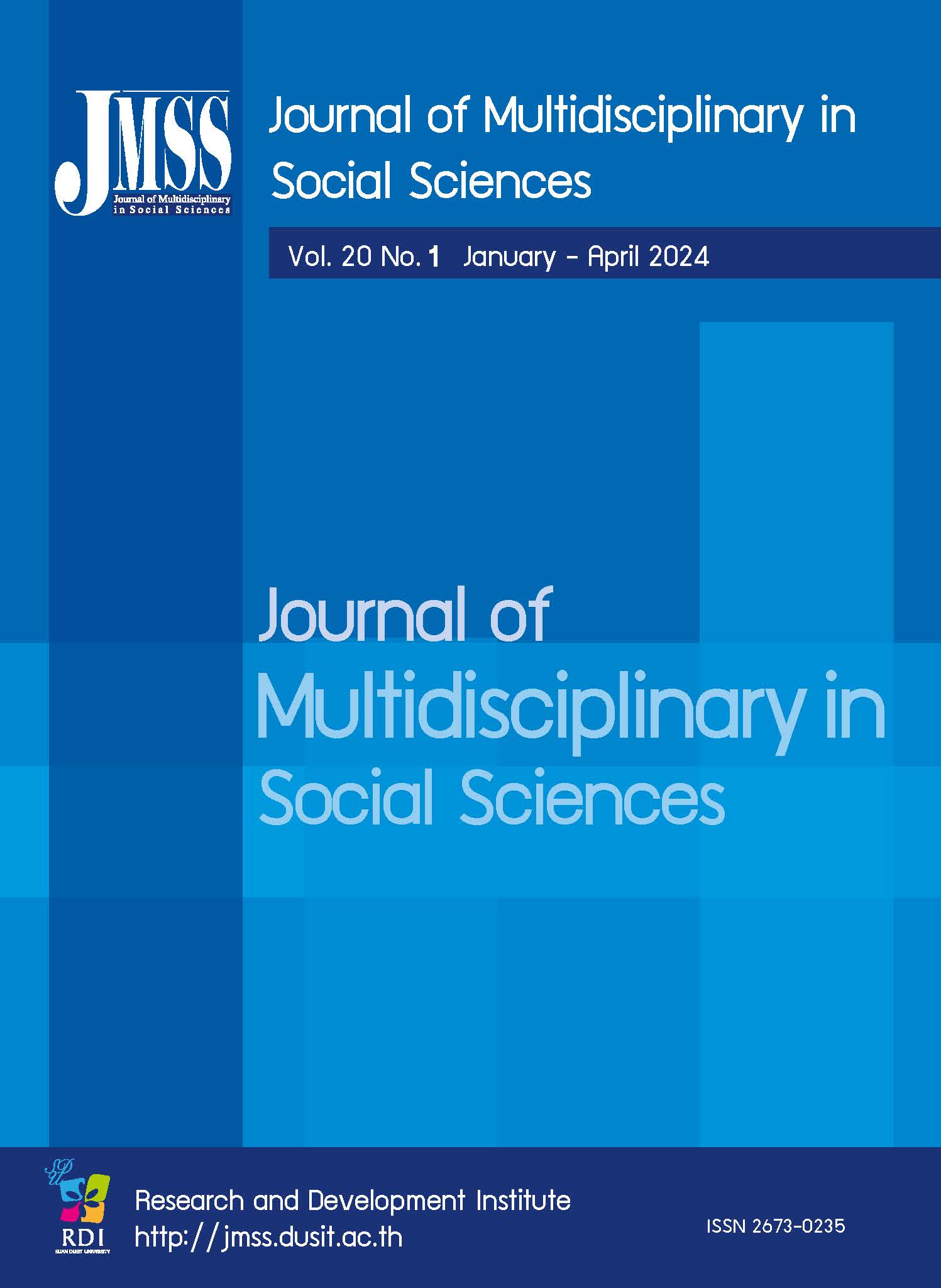Food Safety Culture and the Creation Model of the Demonstration Schools Operated by Public University
Keywords:
Food safety culture, Change leadership, Individualism, Demonstration schools operated by public universitiesAbstract
Food safety for children is an issue affecting children’ s sickness and impedes their learning and physical development in various aspects. Realizing its importance, the concerned authorities therefore support the establishment of measures and standards for controlling and ensuring better student food safety quality. This study focused on the following: 1) examing the level of the following variables; change leadership, individualism, organizational climate and environmental support that affect the food safety culture of demonstration schools operated by public universities, 2) exploring the influence of factors affecting the food safety culture of demonstration schools operated by public universities, and 3) developed the food safety culture creation model of demonstration schools operated by public universities. The mixed research methodology between quantitative and qualitative terms were applied. In view of the quantitative term, the sample group consisted of executives, managers, dietitians, male and female cooks, teachers and teacher assistants involved with food management of demonstration schools, with a total of 440 persons, whereas the sample size was calculated based on 20-time criteria of the observed variables with the multiple-stage sampling. Data collection was conducted through questionnaires that were later analyzed by the structural equation modelling. For the qualitative term, an in-depth interview was made with the primary informants consisting of 21 school executives and sanitation technical officers. The research findings revealed that 1) change leadership, individualism, organizational climate, environmental support and food safety culture of demonstration schools operated by public universities were all at a high level, 2) change leadership, individualism, organizational climate and environmental support affected the food safety culture of demonstration schools operated by public universities at statistical significance level of 0 .05, and 3) the food safety culture creation model of demonstration schools operated by public universities as developed by the researcher was called “ICTS2 (F) Model” (I : Intellectual Stimulation, C : Commitment, T : Training, S : Sanitation, Fsb : Food safety behavior, Fsp : Food safety performance). Additionally, the qualitative findings also indicated that to create the food safety culture of demonstration schools operated by public universities, networks are required to be established to promote knowledge sharing to concerned personnel for awareness and adequate understanding of safety food manufacturing and consumption under environment appropriate for food management. The findings from this research can be further applied as a guideline to determine a policy for food business operation to minimize unsafe food until the food safety culture becomes more efficient.
References
Aquino, H.V.A., Yap, T., Lacap, J.P.G., Tuazon, G. & Flores, M. (2021). Food safety knowledge, attitudes, practices and training of fast-food restaurant food handlers: a moderation analysis. British Food Journal, 123(12), 3824-3840.
De Andrade, M. L., Stedefeldt, E., Zanin, L. M., & Da Cunha, D. T. (2020). Food safety culture in food services with different degrees of risk for foodborne diseases in Brazil. Food Control, 112, 107152.
De Boeck, E., Jacxsens, L., Bollaerts, M. & Vlerick, P. (2015). Food safety climate in food processing organizations: development and validation of a self-assessment tool. Trends in Food Science and Technology, 46(2), 242-251.
Griffith, C. J. (2013). Advances in understanding the impact of personal hygiene and human behavior on food safety. In J. N. Sofos (Ed.), Advances in Microbial Food Safety (pp.401–416). Philadelphia, PA: Woodhead Publishing Ltd.
Fujisaki, K., Shimpo, M. & Akamatsu, R. (2018): Factors related to food safety culture among school food handlers in Tokyo, Japan: a qualitative study, Journal of Foodservice Business Research, 22(1), 9 -13
Manning, L. (2018). The value of food safety culture to the hospitality industry. Worldwide Hospitality and Tourism Themes, 10(3), 284–296.
Powell, D., Jacob, C., & Chapman, B. (2011). Enhancing food safety culture to reduce rates of foodborne illness. Food Control, 22, 817-822.
Taylor, J.Z. & Rostron, K.I. (2018). The development of a safety and quality culture assessment tool from a longitudinal, mixed-method research journey. Worldwide Hospitality and Tourism Themes, 10(3), 313-329.
Wiśniewska, M., Czernyszewicz, E. & Kałuża, A. (2019). The assessment of food safety culture in small franchise restaurant in Poland: The case study. British Food Journal, 121(10), 2365-2378.
Ungku, F. & Ungku, Z.A., (2013). Measuring food safety culture: Insights from onsite foodservice
operations (Graduate Theaes and Dissertation). Iowa State University, Iowa.
Yiannas, F. (2009). Food safety culture: Creating a behavior-based food safety management system (pp. 11-14). New York, NY: Springer.

Downloads
Published
How to Cite
Issue
Section
License
Copyright (c) 2024 Journal of Multidisciplinary in Social Sciences

This work is licensed under a Creative Commons Attribution-NonCommercial-NoDerivatives 4.0 International License.







